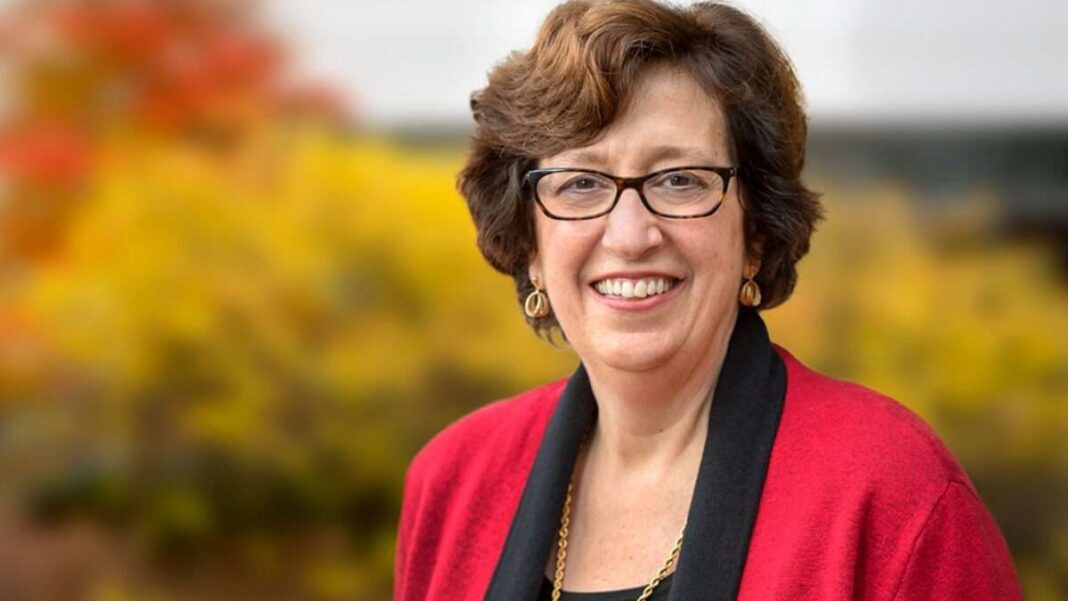The last time I spoke at Cornell University, the turnout was tiny but attentive. Conservative commentator Ann Coulter, who graduated from Cornell a few years before I did, attracted a much larger crowd when she visited the campus in November, but her talk was repeatedly interrupted by loud and angry protesters, and she left in frustration after half an hour.
It was not a proud moment for Cornell. But the university’s response to that embarrassing incident was encouraging, and Cornell President Martha Pollack recently provided further evidence that she is committed to defending civil debate and academic freedom against illiberal activists who cannot abide opposing views. Her example is worth emulating.
In 2019, two years into Pollack’s tenure as president, the university adopted “core values” that include this statement: “We value free and open inquiry and expression—tenets that underlie academic freedom—even of ideas some may consider wrong or offensive. Inherent in this commitment is the corollary freedom to engage in reasoned opposition to messages to which one objects.”
Cornell’s trustees reaffirmed those values in a policy statement they adopted in March 2021. After Coulter’s aborted speech, a university spokesman apologized to her and “all members of the audience who hoped to hear her remarks,” saying “all Cornell students among the disrupters will be referred for conduct violations.” He emphasized that their “inappropriate behavior” did not “reflect the university’s values.”
The necessity for that apology, of course, showed that some students had not taken those values to heart. While “Cornell’s speech-protective policies are commendable,” the Foundation for Individual Rights and Expression said, such policies are “not enough independently to ensure expressive freedoms,” which requires fostering “a climate of free speech” by “educating students about the policies’ importance in safeguarding free expression.”
Pollack seems to be taking up that challenge. A “featured theme” of the next academic year, she announced this week, will be “the significance, history and challenges of free expression and academic freedom,” which students and faculty will explore through “a wide range of scholarly and creative events and activities,” including lectures, book readings, art exhibits, and performances.
“It is critical to our mission as a university to think deeply about freedom of expression and the challenges that result from assaults on it, which today come from both ends of the political spectrum,” Pollack said, reiterating points she made in her 2022 address to new students. “Learning from difference, learning to engage with difference and learning to communicate across difference are key parts of a Cornell education. Free expression and academic freedom are the bedrock not just of the university, but of democracy.”
A decision Pollack made this month was consistent with that stance. After the Cornell Student Assembly unanimously approved a resolution urging the university to require that professors provide warnings to students about “traumatic content in the classroom,” she swiftly and unambiguously nixed the idea.
Pollack recognized that such a sweeping and ambiguous requirement would have a chilling effect on instruction and undermine the benefits of a college education, which requires grappling with difficult and sometimes disquieting material. “We cannot accept this resolution,” she wrote, because “the actions it recommends would infringe on our core commitment to academic freedom and freedom of inquiry, and are at odds with the goals of a Cornell education.”
Pollack is challenging a pernicious impulse. Like Coulter’s hecklers, supporters of mandatory “trigger warnings” think universities should protect students from speech that might upset or offend them.
In a 2021 Knight-Ipsos survey, just 22 percent of college students agreed with that premise. Yet 65 percent thought “the climate at their school or on their campus prevents some people from saying things they believe because others might find it offensive.”
The latter percentage rose steadily from 2016 to 2021. During the same period, the share of college students who viewed freedom of speech as secure fell from 73 percent to 47 percent.
Pollack has her work cut out for her.
© Copyright 2023 by Creators Syndicate Inc.





